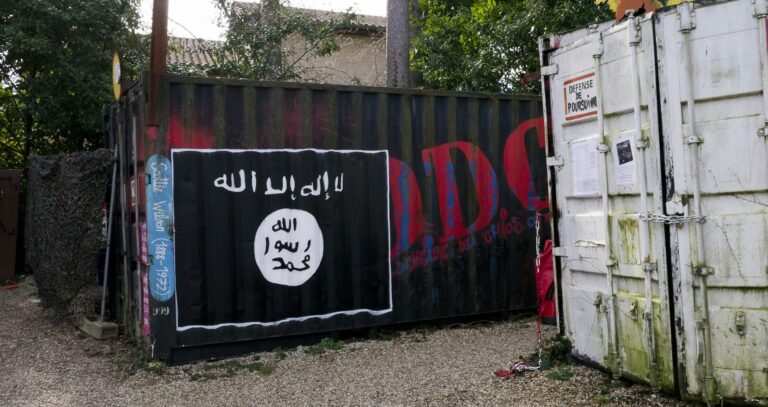
The Taliban ruled out any plans to cooperate with the United States on counterterrorism operations against Islamic State terrorists in Afghanistan, ahead of the first U.S.-Taliban talks since U.S. troops left Afghanistan in August.
On Saturday, Taliban political spokesman Suhail Shaheen told The Associated Press the new Taliban government would not work with the U.S. against the Islamic State’s Afghan branch, known as ISIS-Khorasan, or ISIS-K. Shaheen laid out the Taliban’s position ahead of a meeting between U.S. and Taliban officials in Doha this weekend.
Shaheen did not specify exactly why the Taliban would not work with the U.S. against ISIS-K, but said, “We are able to tackle Daesh independently.” Daesh is the Arabic name for the Islamic State.
ISIS-K has been responsible for a number of recent terrorist attacks in Afghanistan, including a suicide bombing at the Hamid Karzai International Airport in Kabul, which killed 13 U.S. service members and dozens of civilians during the U.S. military-led evacuation of Afghanistan in August.
On Friday, ISIS-K also took responsibility for a suicide bombing that killed 46 minority Shiite Muslims and wounded dozens as they prayed in a mosque in the northern city of Kunduz. ISIS-K has heavily targeted Afghanistan’s minority Shiite population since gaining a foothold in eastern Afghanistan in 2014.
ISIS-K said the Friday mosque bomber was a Uyghur and that the attack targeted both Shiites and the Taliban for their purported willingness to expel Uyghurs to meet demands from China, which has persecuted its Uyghur population in Xinjiang. In July, the Chinese government said the Taliban would be important to establishing peace in Afghanistan but stressed that they should avoid ties with movements like the East Turkestan Islamic Movement (ETIM), which has advocated for an independent state of ethnic Turks in China’s Xinjiang province.
Michael Kugelman, deputy director of the Asia Program at the U.S.-based Wilson Center, told the Associated Press that Friday’s attack could be a preview of a larger conflict between the Taliban and Uyghur militants.
“ISIS claims a Uighur was involved in its attack on a Shia mosque in Kunduz. There are Uighur militants in Afghanistan, most of them members of TIP/ETIM,” Kugelman tweeted. “If the ISIS claim is true, China’s concerns about terrorism in Afg-to which the Taliban claims to be receptive-will increase.”
Responding to Shaheen’s claim that the Taliban could handle ISIS-K by itself, Kugelman warned that while the Taliban have had battlefield successes against ISIS-K, it has struggled to stop ISIS-K attacks and disaffected Taliban members have begun to join the terrorist group.
“The Taliban claims it doesn’t need help tackling ISIS. Indeed it’s had successes targeting ISIS on the battlefield,” Kugleman tweeted. “But it’s struggled to curb ISIS attacks. ISIS also stands to strengthen, because hardline Taliban keen to keep fighting could shift their allegiances and join ISIS. ISIS-K has drawn members from a variety of places, but its fighter and leadership ranks have largely been drawn from disaffected Taliban from Pakistan and Afghanistan. It’s a clear and present threat-one of many big challenges for Taliban as it struggles to consolidate its power.”
After the weekend meetings in Doha between the U.S. and Taliban delegations, officials from both sides said the Taliban has offered some flexibility on continued evacuations of foreign citizens and Afghans from the country.
On Sunday, the Taliban delegation said the U.S. had also agreed to provide humanitarian aid to Afghanistan, the Associated Press reported. The Taliban said the U.S. agreed to continue humanitarian aid on the condition that such aid would not be connected to a formal U.S. recognition of the Taliban government in Afghanistan.
The U.S. delegation was less definitive about humanitarian aid, only saying the delegations “discussed the United States’ provision of robust humanitarian assistance, directly to the Afghan people.”
State Department spokesman Ned Price said, “The U.S. delegation focused on security and terrorism concerns and safe passage for U.S. citizens, other foreign nationals and our Afghan partners, as well as on human rights, including the meaningful participation of women and girls in all aspects of Afghan society.”
Price characterized the talks between the U.S. and the Taliban as “candid and professional.”
Price also said the U.S. delegation reiterated “that the Taliban will be judged on its actions, not only its words.”
0 comments :
Post a Comment